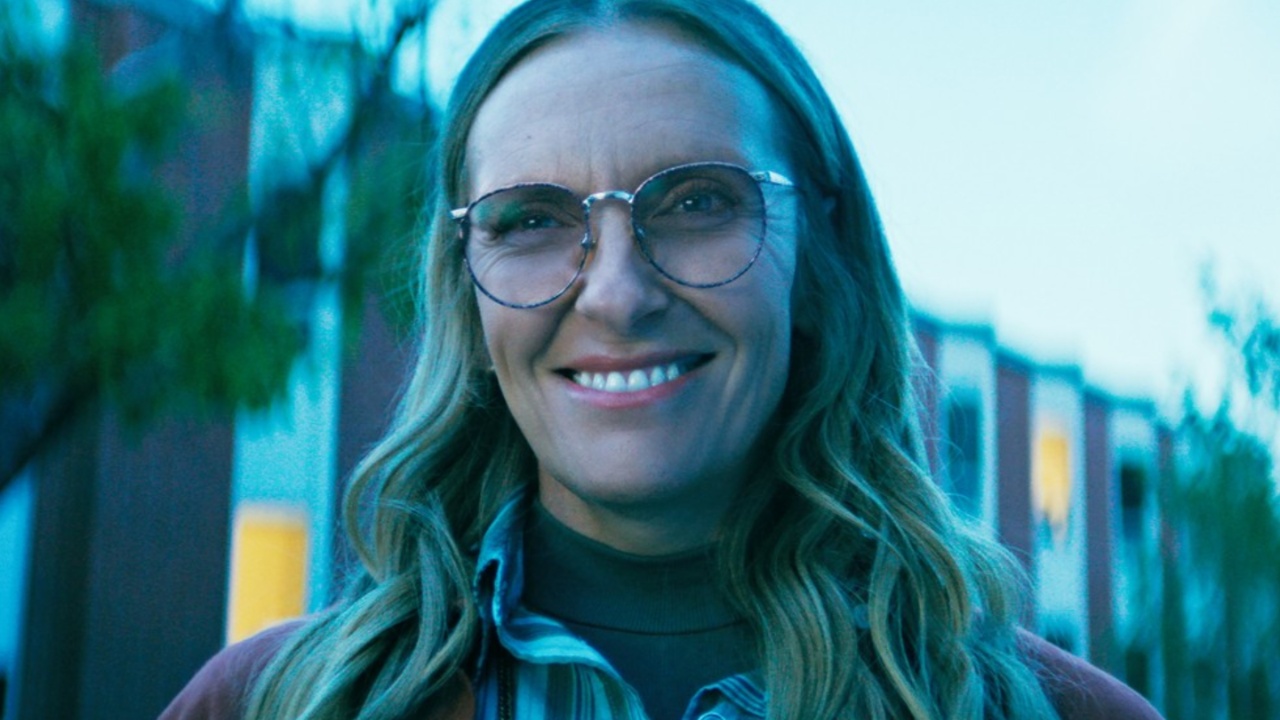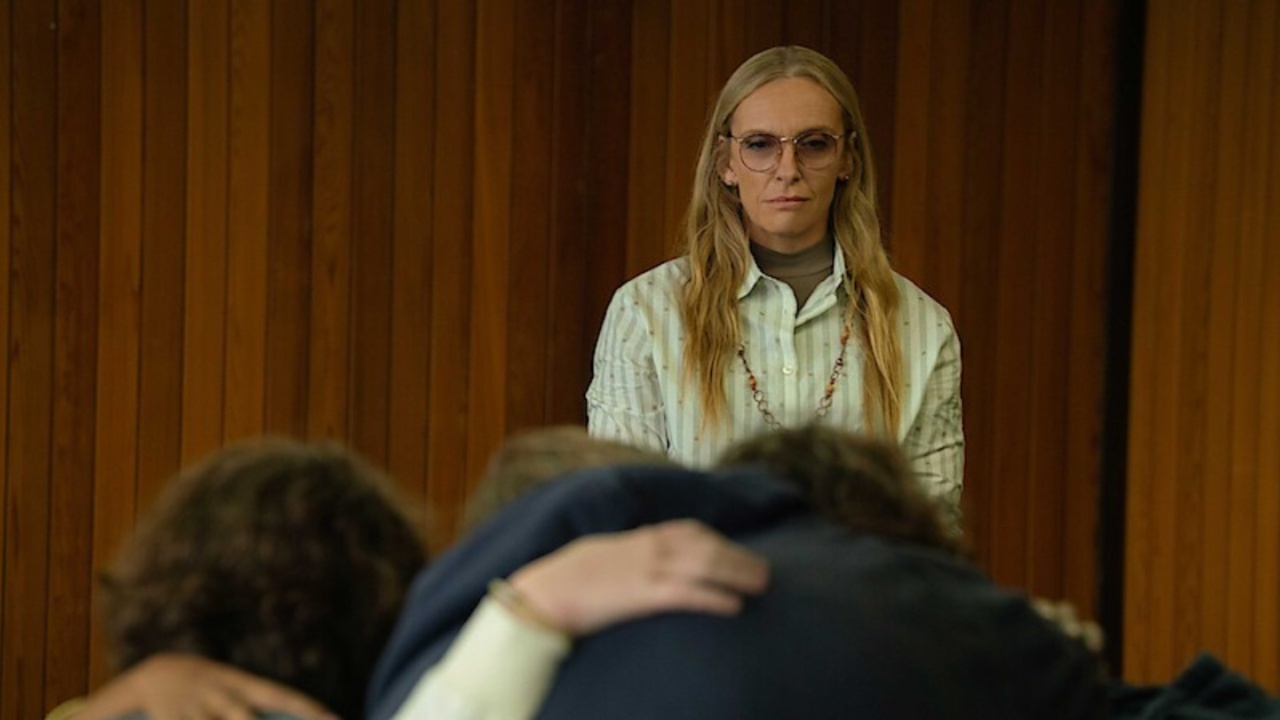The Wayward finale leaves viewers momentarily caught between fantasy and reality. In the closing episode, Alex Dempsey (Mae Martin) imagines taking his newborn and fleeing Tall Pines with escapee Abbie (Sydney Topliffe). For a fleeting moment, it seems Dempsey might reclaim the life he always wanted, free from the cult-like influence of his wife Laura (Sarah Gadon), and the town’s sinister Academy.
Abbie reassures him, calling him “our protector,” encapsulating the show’s recurring theme of guardianship. However, the fantasy dissolves, and viewers realize Dempsey never actually leaves. Instead, Abbie escapes alone, leaving behind her best friend Leila (Alyvia Alyn Lind), emphasizing the series’ exploration of moral ambiguity and personal choice.
Dempsey and Laura’s relocation to Tall Pines follows a traumatic incident in Detroit, where Dempsey faced allegations of excessive force in a police confrontation. Laura’s return, however, is as much about confronting her past as it is about comfort. She spent her adolescence at Tall Pines Academy, forging a complex bond with its enigmatic founder, Evelyn (Toni Collette). Her homecoming reopens unresolved trauma for both Laura and Dempsey, revealing that while their love endured, the town’s secrets would challenge the stability of their relationship.
Tall Pines Academy, ostensibly designed to help troubled youth, harbors dark secrets. Students like Abbie and Leila are subjected to “the Leap,” a psychedelic process using toad venom that erases trauma but also severs emotional connections, including the capacity for future familial bonds. Laura, Leaped as a teen, suffers from its lingering effects. The series portrays the Leap as both a metaphorical and literal reprogramming, showcasing Evelyn’s manipulation and the dangers of idealistic solutions to generational trauma.

Leila’s Trauma, Laura’s Secrets, and Tall Pines’ Dark History Revealed Through Manipulation
Leila’s backstory adds another layer of psychological tension. Her older sister Jess died under mysterious circumstances, with Leila’s memory clouded by trauma. Evelyn manipulates Leila into believing she was complicit in Jess’ death, highlighting the series’s ongoing themes of guilt, memory, and control. Despite Evelyn’s influence, Leila retains agency, illustrating the tension between external manipulation and internal resilience. This dynamic also complicates her friendship with Abbie, creating a nuanced portrayal of loyalty and emotional growth.
Throughout the series, Laura grapples with her parents’ disappearance. Initially believing they abandoned her, she later discovers they were involved in Tall Pines during her adolescence. Evelyn introduces a darker possibility: Laura may have killed her parents as a teen, with Evelyn covering up the act via the Leap. This ambiguity underscores the show’s recurring theme of unreliable perception and the manipulation of truth, leaving viewers to question the veracity of Evelyn’s account and the nature of moral responsibility.
Tall Pines’ idyllic surface conceals a troubled past rooted in 1970s counterculture. Evelyn’s mentorship under the radical figure Weldon forms the foundation for her later teachings and the Academy’s rituals. The series reveals that many of Evelyn’s philosophies are violent extensions of personal trauma, including her own past murders and manipulations. This history contextualizes the town’s cultish structure, illustrating how charismatic leaders exploit generational pain for control and power.

Laura’s Rise, Evelyn’s Fall, and the Complex Choices Shaping Tall Pines’ Finale
Upon returning to Tall Pines, Laura gradually ascends the town’s social hierarchy, ultimately assuming a leadership role reminiscent of Evelyn. Her growing influence among Academy alumni and residents showcases the seductive nature of authority, even for those with genuine intentions. Laura seeks to create a supportive, trauma-informed community, yet the series questions whether she can avoid repeating Evelyn’s destructive patterns. This tension highlights the fine line between empathy and authoritarianism in positions of power.
Evelyn’s final arc is marked by hubris and vulnerability. Attempting to manipulate Dempsey with her signature psychedelic therapy, she is thwarted by her second-in-command, Rabbit (Tattiawna Jones), and subsequently rendered catatonic by her own methods. The series leaves her ultimate fate ambiguous: she may be in a permanent coma or trapped in a hallucinatory state. This unresolved ending reinforces Wayward’s motif of moral uncertainty and the unpredictable consequences of one’s actions.
The series’ climax revolves around Laura giving birth in the midst of her cult-like community. Dempsey witnesses his envisioned nuclear family dissolve as the newborn is shared among Laura’s followers, emphasizing the tension between individual desire and communal ideology. Laura sees this act as creating a supportive “village” for the child, while Dempsey is horrified. This contrast reflects the show’s exploration of conflicting values, parental instincts, and the ethics of collective versus personal ownership.
The series concludes with Abbie escaping Tall Pines while Leila chooses to remain, highlighting the complexity of personal healing. Abbie’s motivations are rooted in care for others, embodying selfless leadership, whereas Leila seeks the community she has long been denied. Their separation is bittersweet, emphasizing that survival and emotional recovery are multifaceted. This resolution underscores Wayward’s core themes of trauma, loyalty, and moral ambiguity, leaving viewers with lingering questions about choice, freedom, and the human capacity for resilience.



